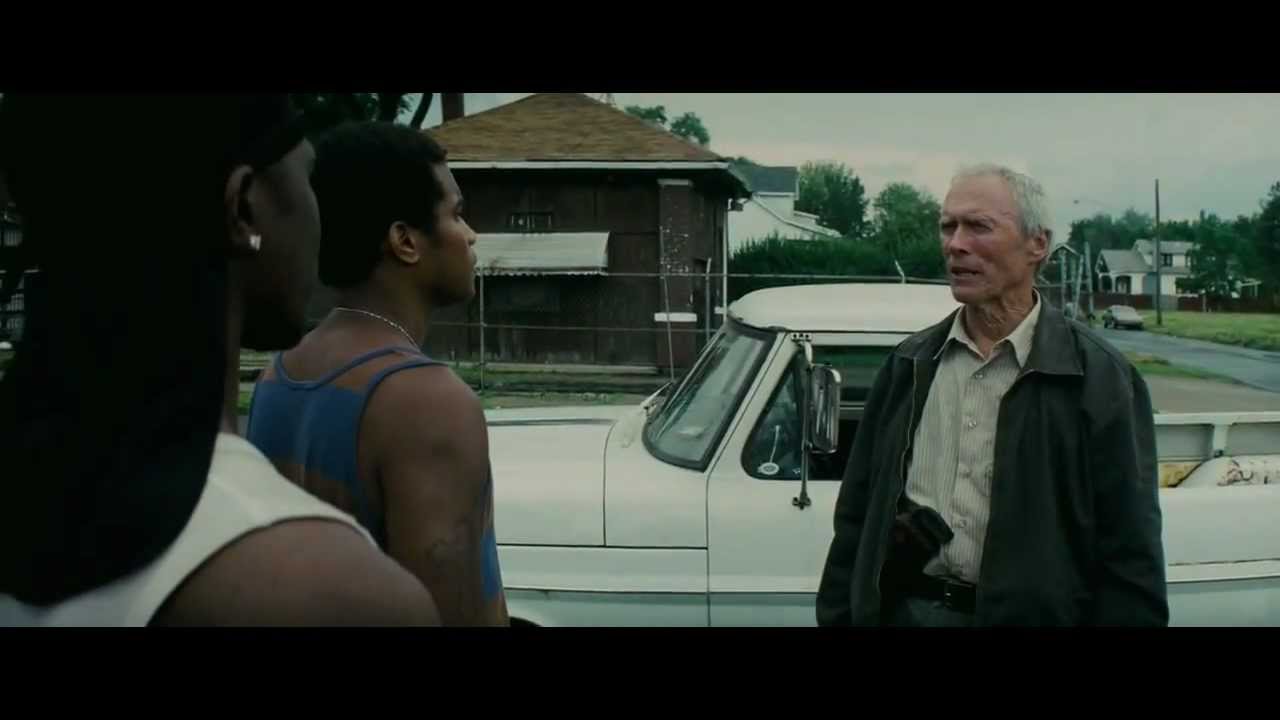🎬 Gran Torino (2008)

🎬 Gran Torino (2008): Redemption and Transformation
Gran Torino, directed by and starring Clint Eastwood, is a poignant drama that explores themes of redemption, cultural conflict, and the complexity of human relationships. The film follows Walt Kowalski (Eastwood), a grizzled and irritable Korean War veteran living in a changing Detroit neighborhood. After the death of his wife, Walt finds himself increasingly isolated and disconnected from his family and the world around him. His once-proud neighborhood has transformed, and he grapples with feelings of resentment and nostalgia for a time when things seemed simpler. 🏡💔

Walt’s life takes an unexpected turn when he becomes embroiled in the struggles of his Hmong neighbors, particularly a young boy named Thao (Bee Vang), who is pressured by a local gang. After witnessing Thao’s failed attempt to steal his prized 1972 Gran Torino as part of a gang initiation, Walt reluctantly becomes a mentor to the boy. Despite his initial gruff demeanor and racist attitudes, Walt gradually forms an unlikely bond with Thao and his family, leading to profound personal growth and understanding. 🌏👦
The film masterfully highlights the theme of transformation, as Walt begins to confront his own prejudices and the consequences of a lifetime filled with anger and regret. Through his interactions with Thao and Thao’s sister, Sue (Ahney Her), Walt discovers the value of community and connection, ultimately leading him to reevaluate his life choices. This transformation is depicted in both subtle and overt ways, showcasing how relationships can foster change and healing. 🤝❤️
Eastwood delivers a powerful performance as Walt, embodying the character’s complexities with depth and nuance. His portrayal of a man grappling with his past while striving for redemption is both compelling and relatable. The supporting cast, including Vang and Her, brings authenticity to the narrative, providing a genuine representation of the Hmong culture and the challenges they face in America. Their interactions with Walt serve to bridge cultural divides, emphasizing the universal themes of family, loyalty, and forgiveness. 🎭🌟

The film also addresses larger societal issues, including the impact of war, the challenges of immigration, and the evolution of American neighborhoods. Through Walt’s journey, Gran Torino critiques the stereotypes and prejudices that often define our perceptions of others. The narrative invites viewers to consider the complexity of human experiences and the power of compassion in overcoming adversity. 🇺🇸💪
As the story unfolds, it becomes clear that Walt’s journey is not just about personal redemption but also about standing up against the cycle of violence and hatred. In a climactic moment, Walt makes a profound sacrifice that ultimately serves to protect Thao and his family, highlighting the film’s message about the importance of selflessness and courage in the face of evil. This act serves as a catalyst for change, leaving a lasting impact on the community and illustrating that redemption is often found in the most unexpected ways. ⚖️🌹

Gran Torino received critical acclaim for its sharp screenplay, Eastwood’s direction, and powerful performances. It serves as a testament to the potential for personal change and the importance of community, making it a significant film in Eastwood’s illustrious career. The film was nominated for several Academy Awards, including Best Actor for Eastwood, further solidifying its place in cinematic history. 🏆🎥
In conclusion, Gran Torino is a compelling exploration of redemption, cultural understanding, and the complexities of human relationships. It invites viewers to reflect on their own biases and encourages empathy in a world often divided by differences. Through Walt’s journey, the film offers a hopeful message about the capacity for change and the power of connection, reminding us that it is never too late to open our hearts to others. 🌈❤️












